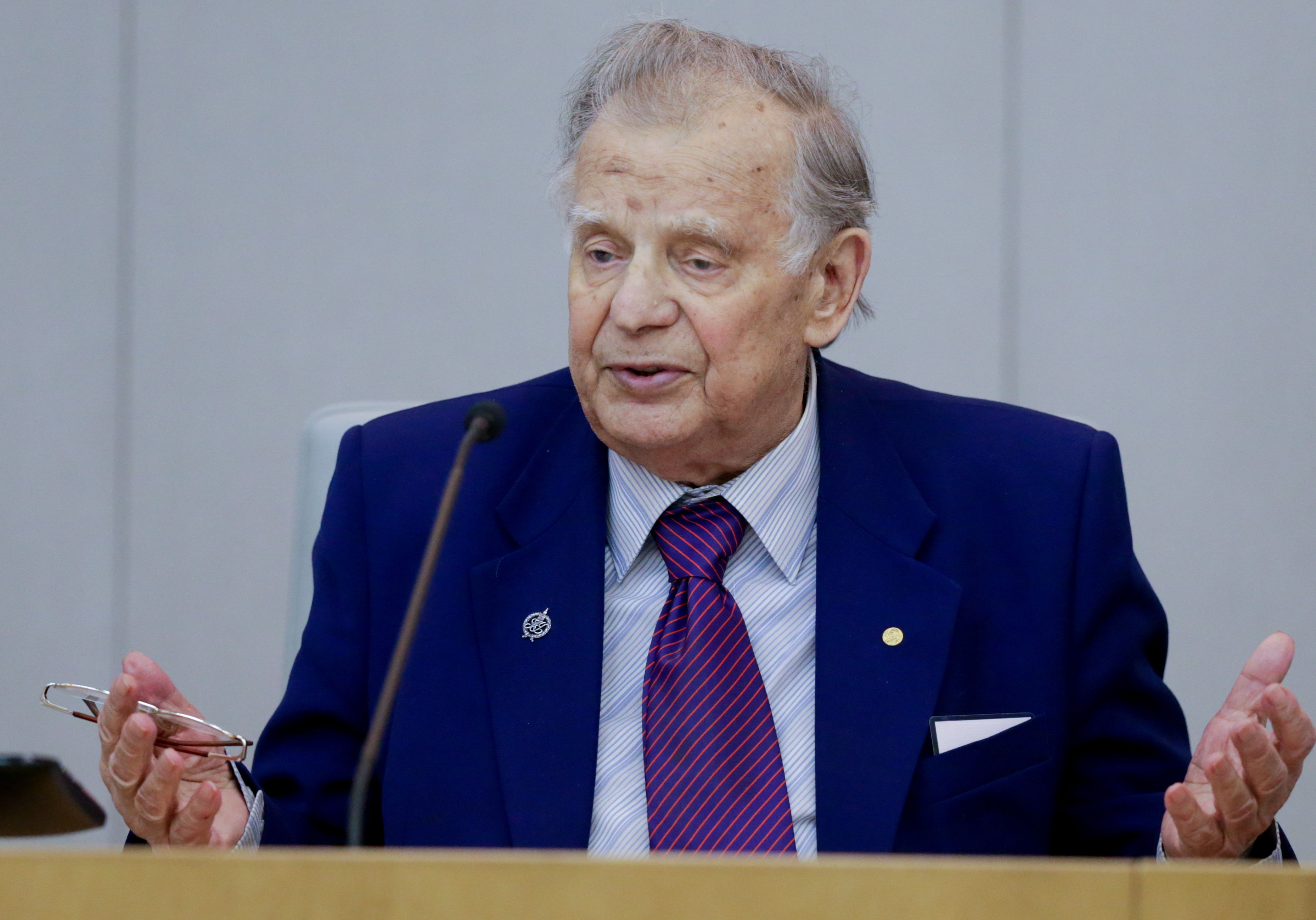Create a free profile to get unlimited access to exclusive videos, sweepstakes, and more!
Zhores Alferov, Nobel-winning Soviet physicist whose work led to DVDs and cellphones, dead at 88

Dr. Zhores I. Alferov, a Nobel Prize-winning Russian physicist whose work helped lead to the creation of cellphones, DVDs, and solar cells, has passed away at the age of 88.
The news of his passing was announced by Russia's state news service, Tass, and confirmed by The New York Times, which reports that Alferov died last night in a St. Petersburg hospital.
Born in Vitebsk, Belarus in 1930 to a father who joined the Bolshevik Revolution in 1917, Dr. Alferov studied physics at Leningrad after World War II, which claimed his older brother, Marx. Alferov did much of his groundbreaking research during the Cold War years. Since his father was an ardent Communist, he was named after the famous French socialist revolutionary, Jean Jaurès.
In particular, he explored the possibilities of the "heterostructure semiconductor," discovering a way to optimally stream photons without overheating the materials making up the semiconductor. This was achieved via a combination of gallium arsenide with aluminum, which replaced the "homostructure" model of just one material, silicon.
In 2000, Alferov accepted the Nobel Prize for physics alongside two American scientists: Herbert Kroemer and Jack S. Kilby, both of whom had also been working on cracking the heterostructure puzzle in the United States.
“Knowledge is power, but power must be based on knowledge,” he said while accepting the award.
During a time period when the United States and Soviet Union were rushing to put a man on the moon, Alferov was also involved in a lesser-known "laser race." While America won the high-profile space race, Alferov and his Soviet team of scientists at Leningrad’s Ioffe Institute were able to create a rudimentary laser that worked at room temperature a month before America's brightest minds at Bell Labs.
If the name "Bell Labs" sounds familiar, it's because the place is prominently featured in the Amazon period dramedy, The Marvelous Mrs. Maisel.
Recounting his time spent on developing the laser, Alferov once recited the following:
“Our purpose was both great and bright
no more the dark! Let there be light!
So to release eternal light
we did the work all day and night.
And when we could neither work nor think
we had the Russian vodka drink...”
Further developments in the fields of both heterostructure semiconductor and heterostructure lasers helped lead to the creation of such modern technologies as LaserDics, LED television screens, fiber optics, and cellular phones. LaserDiscs served as the basis for more advanced video-watching innovations like DVDs and Blu-Rays.
In 1972, Alferov won Soviet Russia's highest science award, the Lenin Prize. By 1987, he was the head of the Ioffe Institute; two years later, he was leading the Leningrad-St. Petersburg branch of the Academy of Sciences. After the collapse of the USSR in the 1990s, the Ioffe Institute gained financial support from America's "Star Wars" initative.
After the Soviet Union fell, Alferov hesitantly became involved with Russian politics to campaign for domestic funding of scientific programs and research.
Alferov is survived by his wife, Tamara Darskaya, their daughter, Olga, and their son, Ivan. He also had a daughter from a first marriage.
(Quotes via Reuters)















